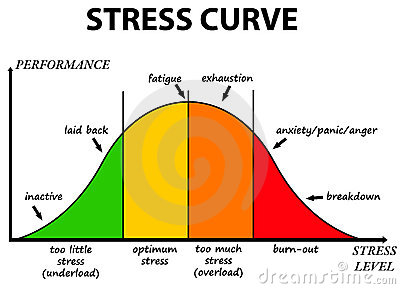I was having a rather disturbing conversation with a mother of a tween and teen who sends her daughters to arguably the most academic and rigorous girl’s school in Central London, which promises futures of Oxbridge and of ruling the world. She told me that about 50% of all the girls at this said school were suffering from moderate to severe psychological problems, which if you compare it to the normal teenager’s prevalence of 20%, is rather shocking.
What?
She described all kinds of psychological problems in these girls; depression, self-harming, eating disorders, anxiety and suicidal thoughts. It is normal for teenagers to have a higher than normal rate of psychological illness, during a time when hormones are raging, identities are being questioned and formed, and when teens are just more vulnerable and sensitive than most. It is not normal for it to be 50%. That is one out of two girls with bulimia or anorexia, depression or anxiety and others who end up with diagnoses and therapists. Some girls are throwing up during lunch breaks or eating appetite suppressant pills to lose weight. Others discussed their suicidal thoughts with their peers, almost as if it was ‘cool’ to be suicidal, calling their friends and telling them they were going to ‘do it’. Others yet are being diagnosed with more complex illnesses such as Bipolar Affective Disorder and Personality Disorders, requiring inpatient treatments and hours of therapy.
‘I can’t understand why this is happening’
The mother, whose children are well-adjusted and happy, couldn’t understand this shocking phenomenon and couldn’t explain why it was happening. Some people have idiopathic depression, when depression just happens without a cause and may be genetically linked. But in this very specific case in a closed school environment, where there is a higher than normal prevalence of psychological problems, it is obvious that there are triggers. Is it the school, the parents, social media or the peers? The answer is probably a bit of everything and probably dependent on the individual.
The School?
She thought that it wasn’t just in this particular school, but that these problems were apparent in many of the top London schools. The pressure that teens experience every day comes from everywhere: top academic schools which push children academically, even those pupils who probably shouldn’t be at these schools. Pressure from parents who push their children to excel and also fill their days with academic and extra curricular activities. Peers who compare themselves to super models. The ‘myth’ that parents tell their children that they ‘are always the best’. www://www.telegraph.co.uk/education/educationopinion/11643947/We-know-whats-wrong-in-education-so-what-are-we-doing-about-it.html
Another parent, this time from a boy’s school of equal scale, thinks it is a personality type, that hyper-competitive, bright and academic types tend to have behavioural issues, boys in a Asperger’s Syndrome and compulsive kind of way and girls with Eating Disorders and mental health issues. He mentioned that the top boarding schools also have problems, and that it isn’t just endemic in London schools. One of his friend’s daughter had to leave her top-of-the-league boarding school under distressing and difficult circumstances.
Parents
We all know pushy parents. Need I say more?
Malaise of the Rich
One mother, rather unsympathetically, thinks that it is the malaise of the rich: they have no ‘real’ problems that they create problems for themselves. The poor in Sudan and Ethiopia aren’t worried about how small their waist line is. They are just hungry. The Syrian refugee children don’t worry about which top school they will get into, they just want a roof over their head. The ‘rich malaise’ may have some impact, but I don’t think it is the only or the root cause of all of these problems.
Control & Attention
Teens are in that awkward, transitional stage where they don’t completely depend on adults but also can’t be completely independent. There is a lack of control of their surroundings, unable to exert their independence yet wanting to. They have, in fact, little control over anything. Their bodies are changing. School at that age is prescriptive. They don’t have a choice how late they stay out or how they spend their money. Their parents splitting up and using them as a bargaining chip is beyond their control or understanding. This lack of control sometimes manifests itself in controlling what they can: eating. Bulimics and Anorexics use these tools as a way of gaining control of what is out of their control. Often there are problems at home or at school and this is their way of expressing themselves. Sometimes, it can be a call for attention and that something is not right in their life.
Societal Pressure
The pressure on teenagers in urban schools is beyond what most normal teens have to endure. Not only do they have excel academically to ‘get into Oxbridge/Ivy,’ they have to excel at extra-curricular activities, be popular, and look like Gisele Bundchen. These are unrealistic expectations that are placed on our children by parents, schools, the external world and society. Yes, it’s lovely to have Natalie Massenet as your role model, but it’s OK not to be her. Of course, it would be lovely for our children to succeed and achieve, get that 1st class honours from Cambridge, become Stephen Hawking, but that is obviously not the destiny for most.
Social Media
It has just been revealed that the level of Eating Disorders hospital admissions to specialist mental health centres for adolescents 13 to 19 y.o. has nearly doubled in the last few years, from 959 in 2010/2011 to 1,815 in 2013/14 http://www.bbc.co.uk/newsbeat/article/32975654/eating-disorder-hospital-admissions-nearly-double. Dr. Carolyn Nahman of the Royal College of Psychiatrists believes that social media is a huge concern as it creates social media pressure for these young girls to look perfect and model-like. There are ‘thinspiration’ websites that glamourise being thin and there are pro- anorexia ones which will wake you up with what is happening on the net. This is a general societal problem rather than just a problem of the super academic and the super rich, but how do we address it?
Family
Family problems can be a cause of stress and anxiety on young, vulnerable teenagers. Parents fighting, parents divorcing, or not having a stable family. Parents should sometimes look at their own behaviours and look at how they may be impacting their child’s. We may overestimate our children’s abilities to cope, just because they may not overtly express their emotions, mostly because they don’t fully know or understand their emotions yet.
Stress
Teens are highly susceptible to the effects of stress but most parents either don’t see it or can’t see it. For those over-scheduled teens who suffer from mental illness, it would be useful to take a step back and look at their lives. Many of them have a rigorous academic schedule and exams which all lead to Oxbridge or the Ivy Leagues. Then they must excel at Netball or swimming or Track and Field to stand out from the rest. There is little time left to be a child, or even to spend quality time with their parents and friends.
If you look at the stress curve, there is a certain level of stress that is beneficial to people, which motivates and drives them and increases their productivity, but once you pass that beneficial threshold, it becomes a detriment to the work and then to the person. For many of these teens, they have gone past the threshold that is beneficial and quickly enter the panic/anxiety part of the curve, missing out on the exhaustion part because they are young, resilient and have more energy than you or me.
I think that parents, schools, and other external factors are all pushing our daughters over the limit of their thresholds and we aren’t stopping them in time. Whatever the child’s problem, it is the parent’s duty to try catch it and try to address it, even though sometimes it is impossible. But it is our duty as parents to at least try and be aware of it.
What to do?
As I see my daughters growing up, already mimicking and role playing Snow White and the Seven Dwarves, asking who is the ‘most beautiful of them all’, I wonder how I will protect them from the world and these overwhelming feelings that you can have as a teenager. What would I do if my child was suffering from depression and self harming I think to myself. Perhaps it would be important to look at their life as a whole, their home, their school situation, their friendship situation and then make some major changes. Perhaps it is our duties as parents to try to provide them an environment that is more suitable to them rather than put them in a situation that suits us and society. We all hope to have brilliant children, and although some thrive in their brilliance, others are crippled by it and it manifests in these psychological conditions.
Foresight
Having been through the teenagers years, I sympathise with these girls, who don’t yet have the coping skills that are acquired over a lifetime to deal with new emotions and challenges, and resort to these detrimental behaviours. For any parent that has a daughter or a son with behavioural problems, beware of the creeping clues and signs in their behaviours and do your best to address them early on. It can take years for mental health problems to develop, so perhaps spending more time with your children will let you see these problems crop up sooner than later, or maybe enable your child to confide in you if they are having difficulties. Getting into Oxford is after all not that important, but having a happy child certainly is.
xx
NHYM
http://www.nottinghillyummymummy.com
@NHyummymummy





